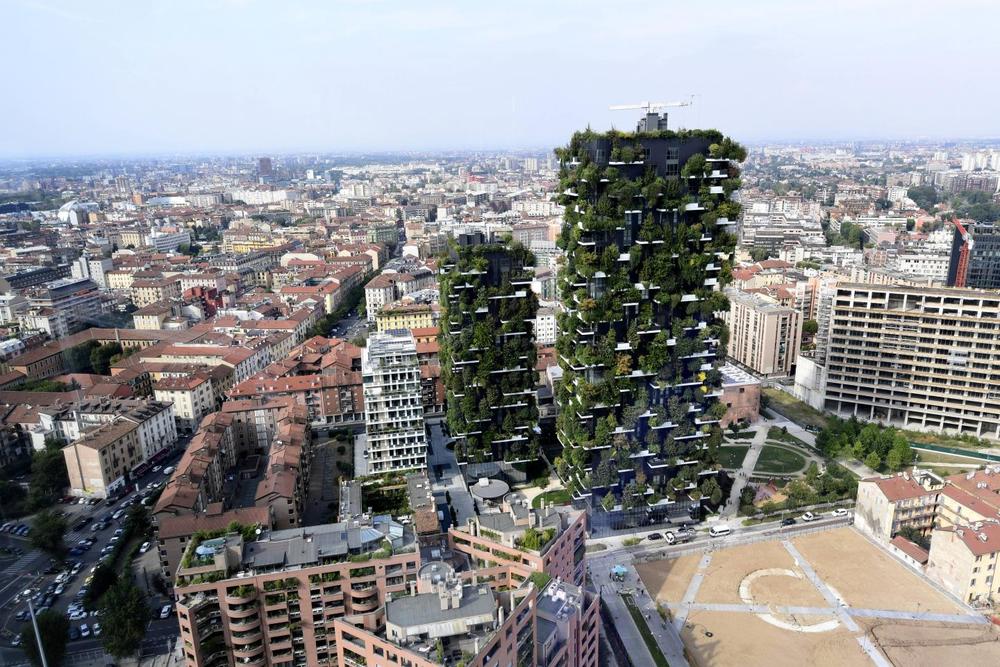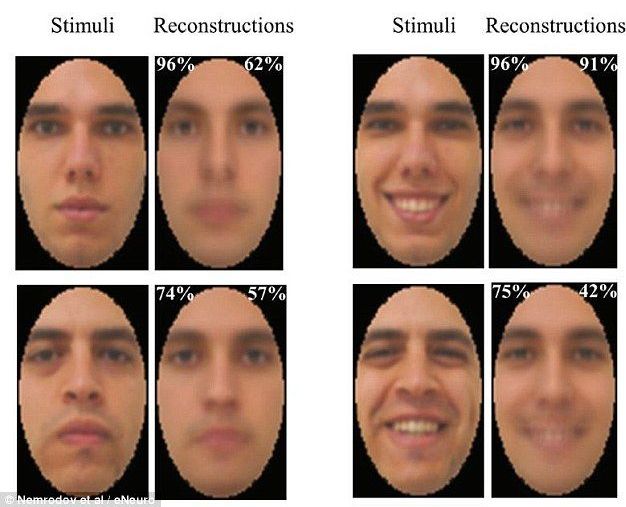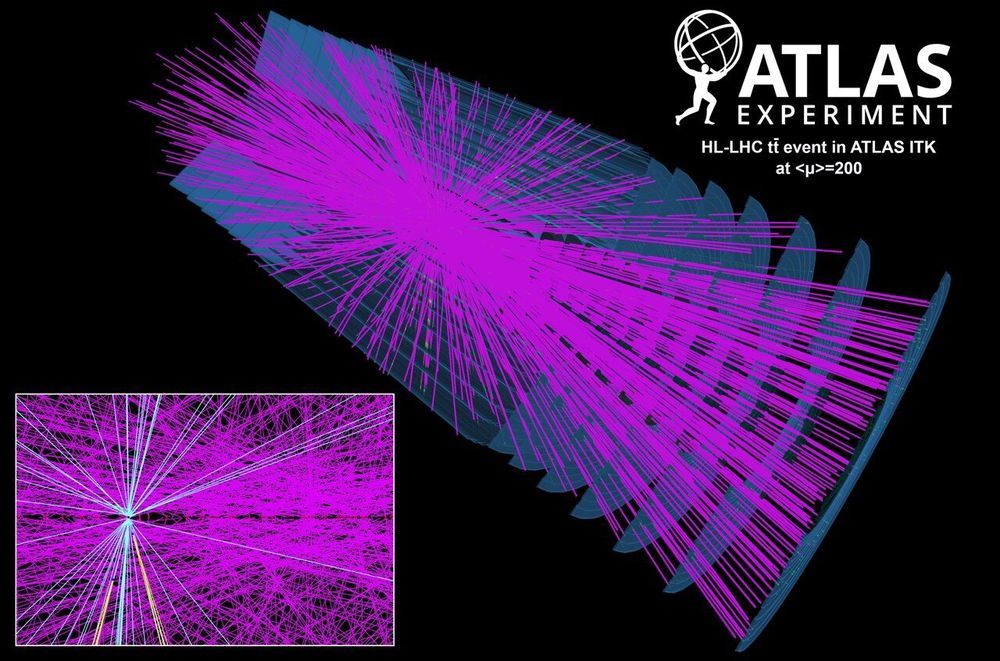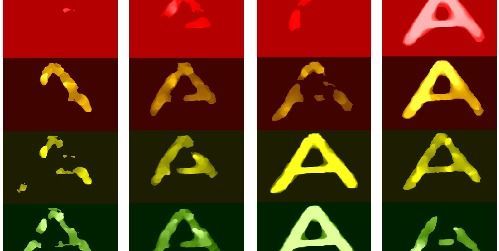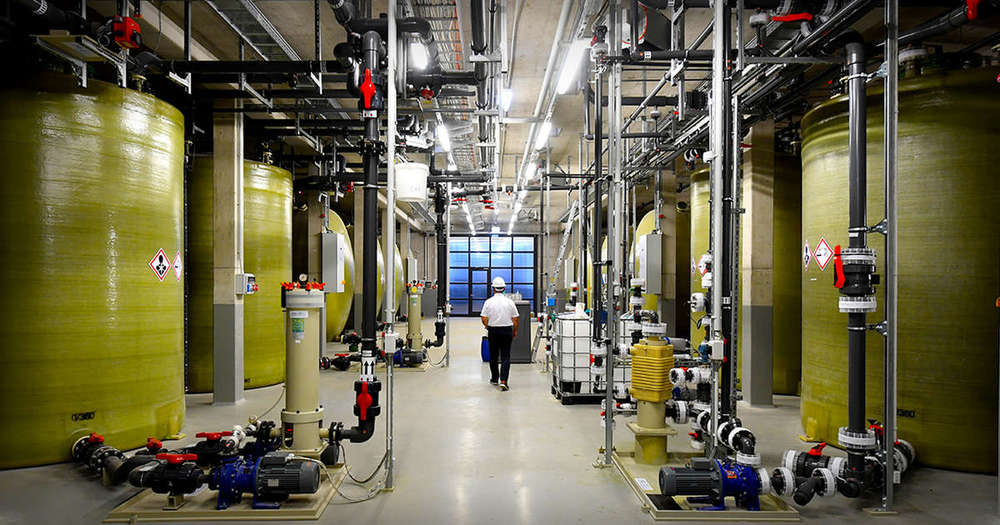Page 7847
May 17, 2019
The robot that can read your mind: Creepy Black Mirror-style machine scans your brain to recreate the face you’re thinking about
Posted by Marcos Than Esponda in category: robotics/AI
Click here to view original web page at www.dailymail.co.uk
Psychologists have create a creepy machine that can peer into your mind’s eye with incredible accuracy.
May 17, 2019
Exploring the scientific potential of the ATLAS Experiment at the High-Luminosity LHC
Posted by Quinn Sena in categories: life extension, particle physics
The High-Luminosity upgrade of the Large Hadron Collider (HL-LHC) is scheduled to begin colliding protons in 2026. This major improvement to CERN’s flagship accelerator will increase the total number of collisions in the ATLAS experiment by a factor of 10. To cope with this increase, ATLAS is preparing a complex series of upgrades including the installation of new detectors using state-of-the-art technology, the replacement of aging electronics, and the upgrade of its trigger and data acquisition system.
What discovery opportunities will be in reach for ATLAS with the HL-LHC upgrade? How precisely will physicists be able to measure properties of the Higgs boson? How deeply will they be able to probe Standard Model processes for signs of new physics? The ATLAS Collaboration has carried out and released dozens of studies to answer these questions—the results of which have been valuable input to discussions held this week at the Symposium on the European Strategy for Particle Physics, in Granada, Spain.
“Studying the discovery potential of the HL-LHC was a fascinating task associated with the ATLAS upgrades,” says Simone Pagan Griso, ATLAS Upgrade Physics Group co-convener. “The results are informative not only to the ATLAS Collaboration but to the entire global particle-physics community, as they reappraise the opportunities and challenges that lie ahead of us.” Indeed, these studies set important benchmarks for forthcoming generations of particle physics experiments.
May 17, 2019
Ultra-clean fabrication platform produces nearly ideal 2-D transistors
Posted by Quinn Sena in categories: business, computing, engineering, particle physics

Semiconductors, which are the basic building blocks of transistors, microprocessors, lasers, and LEDs, have driven advances in computing, memory, communications, and lighting technologies since the mid-20th century. Recently discovered two-dimensional materials, which feature many superlative properties, have the potential to advance these technologies, but creating 2-D devices with both good electrical contacts and stable performance has proved challenging.
Researchers at Columbia Engineering report that they have demonstrated a nearly ideal transistor made from a two-dimensional (2-D) material stack—with only a two-atom-thick semiconducting layer—by developing a completely clean and damage-free fabrication process. Their method shows vastly improved performance compared to 2-D semiconductors fabricated with a conventional process, and could provide a scalable platform for creating ultra-clean devices in the future. The study was published today in Nature Electronics.
Continue reading “Ultra-clean fabrication platform produces nearly ideal 2-D transistors” »
May 17, 2019
Focus: Longer Movies at Four Trillion Frames per Second
Posted by Genevieve Klien in category: futurism
A new technique produces long-lasting movies of nonluminous objects with just a few hundred femtoseconds between frames.
May 17, 2019
An experiment hints at quantum entanglement inside protons
Posted by Quinn Sena in categories: particle physics, quantum physics
Protons are complicated. The subatomic particles are themselves composed of smaller particles called quarks and gluons. Now, data from the Large Hadron Collider hint that protons’ constituents don’t behave independently. Instead, they are tethered by quantum links known as entanglement, three physicists report in a paper published April 26 at arXiv.org.
Quantum entanglement has previously been probed on scales much larger than a proton. In experiments, entangled particles seem to instantaneously influence one another, sometimes even when separated by distances as large as thousands of kilometers (SN: 8/5/17, p. 14). Although scientists suspected that entanglement occurs within a proton, signs of that phenomenon hadn’t been experimentally demonstrated inside the particle, which is about a trillionth of a millimeter across.
“The idea is, this is a quantum mechanical particle which, if you look inside it, … it’s itself entangled,” says theoretical physicist Piet Mulders of Vrije Universiteit Amsterdam, who was not involved with the research.
Continue reading “An experiment hints at quantum entanglement inside protons” »
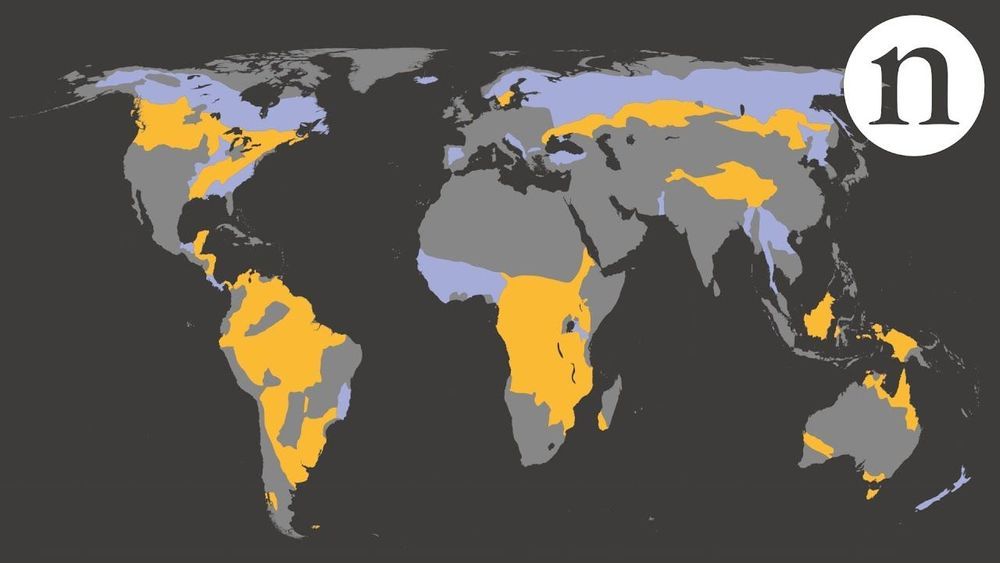
Circa 2016
Richard T. Forman and Jianguo Wu call for global and regional approaches to urban planning.
May 17, 2019
The Future of Commercial Travel
Posted by Quinn Sena in categories: futurism, transportation
When the Wright brothers pioneered their first flight in 1903, they dreamed of transforming the way our world connected. It’s safe to say they would be astonished at the progress of aviation. From that 59 second flight traveling a distance of 852 feet, we have established a world where there is an airport in nearly every major city, giving people the opportunity to see the globe in ways the Wright Brothers dreamed of.
May 17, 2019
Giant Flow Batteries Could Power Your City In The Future
Posted by Quinn Sena in categories: energy, futurism
Watch Giant Flow Batteries Could Power Your City In The Future, an Earth video from Seeker.
